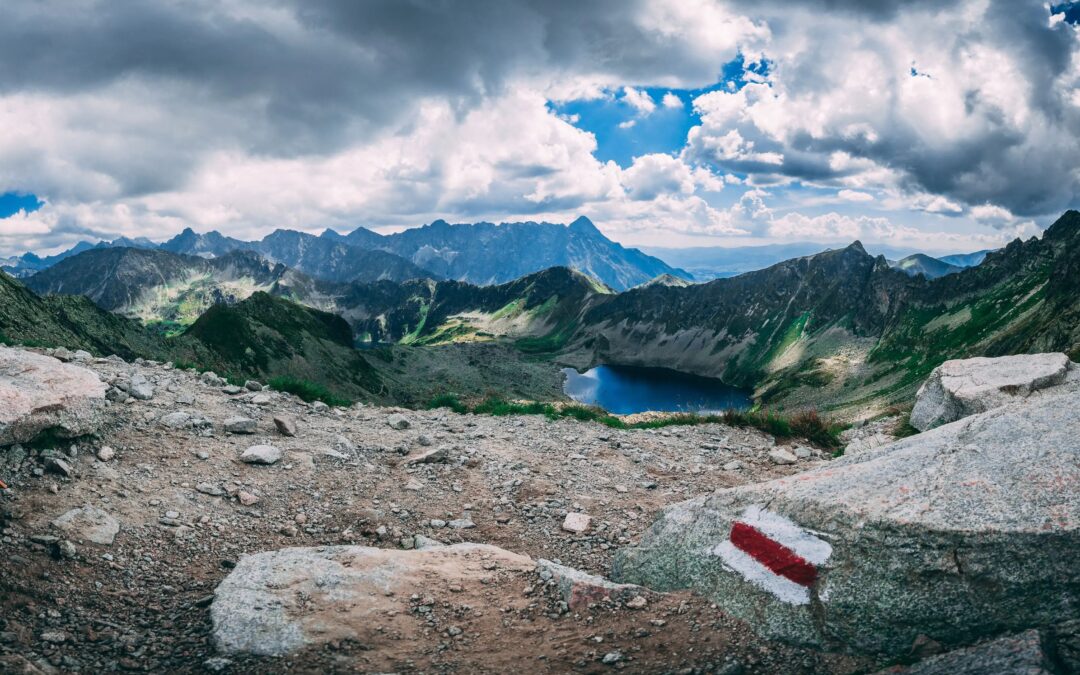Poland’s new government has announced plans to create the country’s first new national parks in over two decades, as well as to enlarge existing ones.
“This is and will continue to be a priority for us,” climate and environment minister Paulina Henning-Kloska told broadcaster TVN24 yesterday.
Minister @hennigkloska w programie @TakJestTVN24 w @tvn24: Rozpoczęliśmy działania nad reformą zarządzania lasami państwowymi. Przeglądamy wszelkie protesty wobec wycinek na terenach @LPanstwowe. Rozpoczęliśmy także prace nad powiększaniem parków narodowych. Będziemy dbać o… pic.twitter.com/uvJBY4oaCl
— Ministerstwo Klimatu i Środowiska (@MKiS_GOV_PL) December 27, 2023
Henning-Kloska is a deputy leader of the centrist Poland 2050 (Polska 2050), one of the parties that makes up the new ruling coalition led by Donald Tusk that took power earlier this month.
Poland 2050 has placed a strong emphasis on its environmental policies. In its election programme, the party pledged to double the area of national parks in Poland within seven years, noting that they currently cover only 1.1% of Poland’s land area compared to an EU average of 3.7%.
The party also promised to “put an end to treating Polish forests like timber factories” by banning logging in “the most valuable 20% of Poland’s forests”.
The coalition agreement between the parties that have formed the new government included a pledge to increase the number of national parks.
Poland's forestry law does not meet its obligations under an EU directive to protect natural habitats, the ECJ has ruled.
Ruling party figures condemned the EU court for "interfering" in Poland's internal affairs at the behest of "foreign organisations" https://t.co/JPwrDGOa9q
— Notes from Poland 🇵🇱 (@notesfrompoland) March 2, 2023
Speaking to TVN yesterday, Henning-Kloska revealed that her ministry has “started working on the reform of the management of state forests”, including analysing protests against logging overseen by the state forestry agency under the previous government.
“We have also started work on expanding national parks,” she added. “We will take care of green areas and reduce the scale of logging. These are our commitments for the next four years.”
The minister also said that they were working on places to better allow “local communities to decide what happens in their immediate environment”.
Poland's largest national park has appealed for help tackling its worst fire in two decades, which is threatening rare wildlife.
It is believed the fire was started by farmers illegally burning grass. Its spread has been exacerbated by drought conditions https://t.co/LtB68YtJ97
— Notes from Poland 🇵🇱 (@notesfrompoland) April 22, 2020
Poland, which is the fifth largest country in the EU in terms of area, currently has 23 national parks. The last time a new one was created was in 2001 – the Warta Mouth National Park in western Poland, near the border with Germany.
The development of national parks came to a halt after the introduction in 2000 of a law requiring the agreement of all local authorities concerned. Previously, parks were established by unilateral decision of the government.
In its coalition agreement, the new government pledged that it would expand the area of national parks “in consultation with local communities”. However, investigative news website OKO.press notes that this promise may be hard to fulfil in practice.
The ministry is likely to face resistance from some local municipalities (who may not want to lose attractive plots of land to new national parks) and the state forest agency (which is tasked with forest management, thus primarily logging), writes OKO.press.
Rząd Tuska powiększy powierzchnię parków narodowych? Nie będzie łatwo. [Lista problemów]@marcelwadnas @hennigkloska @MKiS_GOV_PL #rządTuska #klimat #środwisko @Polska2050_live #okopresshttps://t.co/rXZHJJfz3g pic.twitter.com/A3dZOUL7BC
— OKO.press (@oko_press) November 22, 2023
Environmental activists have long argued that Poland, which is currently ranked 29th among European countries in terms of the share of national parks in the country’s area, needs to extend the protected areas.
The Natural Heritage Foundation, an NGO, proposed in a report published earlier this year the creation of 25 new parks and the expansion of current ones. It wants land under protection in Poland to increase to just over 3% of the country’s area.
“The easiest way to do this will be to build on the already proven, traditional and legally established forms of nature conservation, such as national parks,” the report’s authors wrote.
25 nowych parków narodowych do utworzenia w Polsce ✅
21 parków do poszerzenia ✅
3% powierzchni Polski parkiem narodowym ✅
Nasze propozycje na #EuropejskiDzieńParkówNarodowych https://t.co/0YD9LPYIJb @NaukaPrzyrody @Greenpeace_PL @ClientEarth_PL @OTOP_tweets @MZmihorski pic.twitter.com/icFZN6Vl6l— Przyrodnicze 🌳🌳🌳 (@przyrodniczeorg) May 24, 2023
“We realise that there is also a need for political will regarding unblocking the stalemate that has resulted from the imposition of a statutory blockade on the creation of new and the expansion of existing national parks,” they added.
The foundation proposes, among other things, that new national parks be created in the place of Knyszyn Forest Landscape Park in northeastern Poland and in Lower Oder Valley to supplement existing national parks on the German side of the Oder river.
The foundation also calls for the enlargement of existing parks such as Woliński National Park and Słowinski National Park on the Baltic coast, famous for its sand dunes, and Białowieża National Park, which protects Europe’s last primaeval forest, to be enlarged.
In a remarkable series of wildlife pictures published exclusively by Notes from Poland, photographer @Exen captures the beauty of the animals of the Białowieża Forest, one of the last remnants of the primeval forest of the European plainhttps://t.co/8z6N6HOmCz
— Notes from Poland 🇵🇱 (@notesfrompoland) December 9, 2019

Notes from Poland is run by a small editorial team and published by an independent, non-profit foundation that is funded through donations from our readers. We cannot do what we do without your support.
Main image credit: Andrzej Rusinowski/Unsplash

Alicja Ptak is deputy editor-in-chief of Notes from Poland and a multimedia journalist. She has written for Clean Energy Wire and The Times, and she hosts her own podcast, The Warsaw Wire, on Poland’s economy and energy sector. She previously worked for Reuters.



















